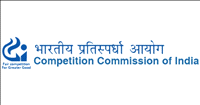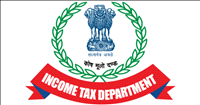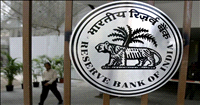Africa seeks greater diversification of Indian investments
03 Oct 2013
Trade ministers of India and Africa have called for increased and diversified investment flows from India as the continent is on the cusp of rapid industrialisation and development.
The third Africa-India trade ministers meeting also called for diversification of Indian investments in Africa so as to contribute towards industrialisation of Africa through production of value-added products.
"India has begun investing in the energy sector as well as mining in Africa, we look forward to these investments contributing to Africa's agenda to promoting industrialisation and value-added products for raw materials," African Union chairperson Nkosazana Dlamini-Zuma said on Tuesday.
She called for more direct investment from India in Africa, saying "such investments should be diversified and encourage local private sector participation, particularly for women and Africa's growing youth population".
Lauding India's continued contribution to Africa's development, South Africa's minister of trade and industry Rob Davies said, "We have been partners for many years and our trade relations continue to grow from strength to strength."
During bilateral meetings with his Indian counterpart, commerce minister Anand Sharma, Davies sought an early conclusion of the India- Southern African Customs Union (SACU) Preferential Trade Agreement negotiations.
The two ministers also discussed a whole range of bilateral issues and expressed satisfaction on the healthy growth of trade, which had touched $14 billion and investment flows from India that had crossed $7 billion.
As major emerging economies, the two sides also reviewed the progress of negotiations in the Doha Round and preparations for the Bali ministerial meeting of the World Trade Organisation (WTO).
''The forthcoming Bali ministerial meeting was an opportunity to give momentum to the Doha development round, which has its heart a strong development agenda,'' Sharma said.
He also urged India to help Africa become "industrial producers" by forging a mutual beneficial relationship.
"Africa needs to industrialise, and the option of simply producing value-added products and exporting those to the developed world is no longer viable," said the minister.
Acknowledging India as an important partner in the joint efforts to promote regional integration in Africa, officials said bilateral trade needed to be balanced.
India has offered to lower tariffs for imports from SACU nations, which will attract 70 per cent lower tariff than MFN rate after the treaty is signed.
The Southern African Customs Union (SACU) consists of Botswana, Lesotho, Namibia, South Africa and Swaziland.
India has pitched for early conclusion of the preferential trade pact with African nations, which is expected to help enhance business ties between India and minerals rich countries of the continent.
India is currently Africa's fourth-largest trading partner, while Africa is India's sixth-0largest partner.
Bilateral trade between Africa and India reached $60 billion in 2011 and is expected to reach $90 billion by 2015.
The bilateral trade target of $100 billion by 2015 and $200 billion by 2020 is a modest one and is certainly achievable, Sharma said.
The second India-Africa Business Council ( IABC) meeting in Johannesburg, co-chaired by Bharti group chairman Sunil Mittal also raised the issue of air connectivity and visa related issues that are acting as barriers to increased trade between the two sides.
Sharma assured that the air connectivity issue has been taken up at the highest level and that Air India will resume its flights to Africa from 2014 onwards.
"The issue of air connectivity has to be addressed. The matter has been looked into at the prime ministers' level, and at my level. You will soon see resumption of flights by Indian carriers both Indian private and public", Sharma said addressing the council.
On liberalisation of visa regime, Sharma said that both sides can identify the apex industry chambers that can help in this process.
He also strongly took up the case of Indian pharmaceuticals industry saying that India is a supplier of quality low-cost generics drug.
"There is a concerted campaign by vested interest groups and multinational cartels to confuse the discourse which questions the credibility and efficacy of Indian generics. We must remain vigilant against such voices," he said. India exports low-cost generic drugs to over 230 countries in the world and one-fifth of these are directed towards Africa.
The India-Africa Business Council meeting identified pharma, agriculture, minerals and mines and oil as priority sectors of private investment and integration and presented a report to the trade ministers.






























